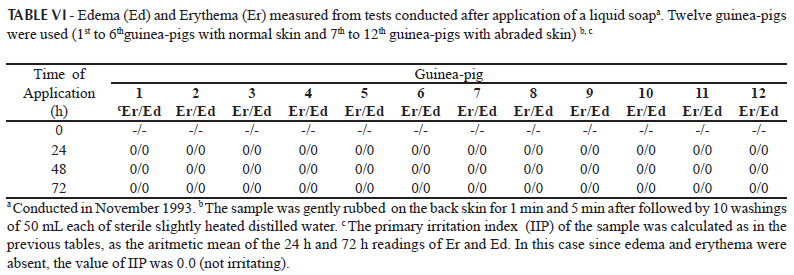In this study, 602 samples were tested by the following assays performed at the animal facilities (Cedeme) of the Federal University of São Paulo (UNIFESP): 385 for dermal irritability, 90 for ocular irritability (discontinued in 1995), 31 for systemic toxicity by injection, 26 for oral acute toxicity, 15 for toxicity by intracutaneous injection, 15 for skin sensitization, 15 for toxicity of serum and vaccines for human use, 14 for toxicity by intramuscular implantation, 7 for pyrogens, 2 for acute dermal toxicity, and 2 for irritation of mucous membrane. The following agents were tested: cosmetics and related substances (42.0%), chemicals used in industry (32.9%), plastics, rubber, and other polymers (15.9%), agrotoxics (4.0%), medicines (2.7%), and vaccines (2.5%). In the present description, emphasis was given to tests of dermal irritability and sensitization. This work was conducted entirely in animal facilities, according to our general belief that animal facilities at universities, while considering ethic principles and sanitary, genetic, nutritional, and pathophysiological controls, also require laboratories specialized in areas such as transgenics, cryopreservation, ambiental physiology, functional genomics, alternative models, and mainly activities and research on methods in toxicology, as focused in this study.
Acute biological assays; Cosmetics; Cosmetics; Cosmetics; Drugs; Drugs; Drugs; Chemical substances; Chemical substances; Dermal irritability










